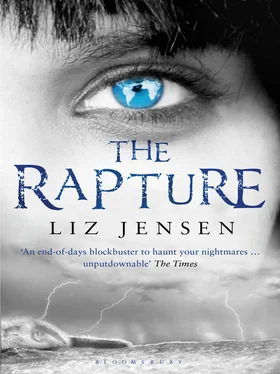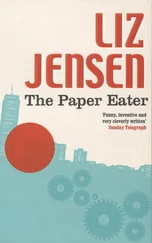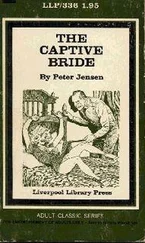‘But what if it isn’t fantasy?’
‘The paranoids really are out to get me? Istanbul really is about to be destroyed by a massive earthquake?’
He pauses mid-bite. ‘It’s on a faultline. So it’s a real possibility. Quite well-known.’
‘And there’s going to be a massive hurricane hitting Rio de Janeiro next week? On the twenty-ninth? She gets very specific. And it all seems to be Armageddon-related, one way or another.’
‘Para-catastrophology.’ He pulls out reading glasses to survey the menu we’ve just been handed by the waiter. Not forty, then, I think. A bit older. ‘A whole new field. Could put experts like me out of a job. There was a bloke in the States, in Vermont, called the Weather Wizard, he’s dead now. His real name was Louis D. Rubin. He looked at the clouds and predicted days when there’d be unusual weather. He was mostly right.’
‘So she might be right about this hurricane, for example? By picking up signs the rest of us can’t see? Because that’s what she’d claim.’
‘I’d doubt it. It’s still the hurricane season, and they’re getting bigger every year because of the increased air temperatures. But super-hurricanes are a complex phenomenon. With global warming, we’re seeing all sorts of things we haven’t seen before. That’s the trouble with trying to model anything on a computer: we only have the parameters of what’s already known. But Rio de Janeiro — highly unlikely, I’d say. It’s south Atlantic, and typically they’re in the north. The first on record was in 2002. Took a lot of us by surprise. But it may have marked the start of a trend.’
‘So what are the chances that she’s right?’
At this his eyes change shape and you can almost see his brain turn into a calculator. ‘Off the cuff? A thousand to one.’ He smiles suddenly. ‘I’d be happy to bet our next dinner on it.’ He takes a big bite of poppadum and crunches noisily.
I can’t help smiling too. I can’t be used to it, because it makes the muscles around my mouth ache. Is it possible that I am enjoying this evening after all? I agree to the bet, but insist that this dinner’s on me, because it’s my birthday. There. I have said it. Delighted, he orders champagne, for which he insists he’ll pay. Surprisingly, Delhi Dreams has some, and even more surprisingly, it comes close to being adequately cold. If he thinks it odd that I have nothing better to do on my birthday than have dinner with a physicist I met at a function to which I had to scrounge an invitation from my well-connected boss, he doesn’t mention it: he says it’s an honour, and he raises his glass in a complex toast which pays tribute to my ‘fabulous dress and its contents’, to Child B, and to the vagaries of high and low pressure uniting us ‘at this auspicious moment of twenty-first-century history’.
Frazer Melville, who is forty-four, who lost his mother to cancer only two months ago, and who is divorced from a Greek geologist called Melina, eats in the same way he orders. He is eager, greedy, unselfconscious, and sure of his own taste. Melina couldn’t have children, he tells me. But that’s not why the marriage failed. It was more complex. ‘And quite humiliating for me,’ he confesses. ‘Knocked me right back.’ I nod and wait for him to go on. ‘Irreconcilable differences just about covers it. It was tough, but we’re on amicable terms now that she’s back in Athens. Our interests overlap, so we run across one another’s work from time to time. Exchange the occasional e-mail about marine landslides and whatnot.’
‘Did you ever make fireworks when you were a boy?’ I ask him.
‘Only the basic liquid kind with Diet Coke and menthols. I wasn’t a sophisticated pyromaniac. I melted gallons of wax over bonfires and made a million tangerines explode. A normal childhood for someone who ended up as me. OK, my turn. Gabrielle as a kid. Hmm. You were a mini version of what you are now. You were sharp, and very proud of that amazing hair, even though you knew you shouldn’t be. You knew how to empathise but it got you into trouble sometimes. But you weren’t so angry back then. Or so beautiful.’
The problem with blushes is that once they’ve started, there’s no preventing them from running their course. The champagne is going down well. Giddy after two glasses, I start telling jokes, culminating in the one about the faith healer. I barely recognise myself.
Later, back home, I wonder if I am still able to like people. It isn’t something I’ve properly tested. I let him push my chair when we went through the hotel kitchen — and not just because I wanted to protect my dress from being splattered with sauce by some maniac sous-chef. In the delicate etiquette of wheelchair use, I permitted an intimacy.
A few nights later I am having one of my vertebra dreams. I am operating on my own lower back, fixing the damage with pliers and a monkey wrench. ‘There,’ I tell the nurses and medical students who are watching. They are in a semicircle. ‘If I can do it, you can.’ I point to the diagram of the spine, the one they first showed me when they explained my injuries. It looks like a bonsai tree. An alarm bell goes off. It is a warning. I must finish the operation because they need the pliers back. And the monkey wrench.
It’s actually the phone.
There is light coming through the blinds, but it feels like the middle of the night. I check my alarm clock. It’s seven a.m. The phone is cordless and I have left it on the table by the door, too far to reach in any hurry. So I do not pick up — partly because I suspect it is Lily, who I know from our conversation a few days ago is gearing up to one of her love crises. Vertebra dreams always throw me. I am having trouble getting my mind in order. My head hurts. I had three glasses of wine last night. Alone. Lesson number one of paraplegia: alcohol is bad for you. After six rings, the answerphone kicks in.
‘Sorry to ring so early, Gabrielle,’ he says. ‘You’re probably fast asleep. Dreaming of new ways to—’
‘New ways to what?’ I ask, picking up. Funny how a paralysed woman can shift her butt quite quickly when she wants to.
‘New ways to intrigue men from Inverness. But listen here. This is going to sound odd but I have to ask you. That south Atlantic hurricane your psychotic case talked about. Child B.’ He sounds excited, a bit reckless. ‘Can you remember when she said it would hit Rio?’
‘The twenty-ninth.’
There’s a grunt on the other end of the line and then a fumbling sound: my Scottish physicist friend is apparently getting dressed, one-handedly, as we speak. I can hear Radio Four on in the background.
‘I thought so. Just had to check.’
‘Isn’t the twenty-ninth today? What is this?’
‘I don’t know. A weird and amusing coincidence. Look, thanks, Gabrielle, and sorry to wake you, lovely one. I’d like to talk but I’m going to be busy over the next few days. Look at the news and you’ll see why. I might just be buying you dinner.’ And he hangs up, leaving me disturbed and excited. By the phone call, and its content. And by the interesting expression ‘lovely one’.
According to the TV news, a hurricane that has been brewing in the south Atlantic ocean is now whirling its way down the coast of Brazil. Its name is Stella. Its mass and speed qualify it as a super-hurricane.
And it is heading for Rio. Just as Bethany said.
Television is a cruel medium, continually ushering newsworthy visitors, uninvited, into your living-room. After the commercial break, the guest of honour is carnage. The hurricane is busy flattening a sprawl of towns and villages down the coast of Brazil. On the screen, splintered trees and a blur of broken man-made lumber jostle along fast-flowing rivers of mud, or spin into the vicious cycle of a whirlpool system, where the flotsam of urban catastrophe churns circularly in all its heart-wrenching banality, with sofas, beat-up cars, road-signs, office equipment, hoardings and human bodies bobbing like oversized corks in a brown froth of mud. If Stella hits Rio it will be ‘a disaster on an unprecedented scale’, according to the CNN commentator, who is explaining with a set of rapidly evolving graphs how the vortex of wind is picking up momentum and vibrating its way south. Brazilians struggle in the flooded wreckage of what must once have been their homes — a sheet of corrugated iron here, a door-frame there, a child’s bed. Desperate people clinging to gas canisters and oil-drums. Lives upended in the time it takes for a pan of beans to boil.
Читать дальше












